HP releases the chunkiest Chromebook
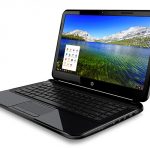
Is it my imagination, or does each new Chromebook get bulkier than the last? Today HP joined the Google operating system family, introducing the heaviest model (1.8 kg/3.96 pounds) with largest display (14 inches). Lenovo's ThinkPad Chromebook, announced in mid-January, is a tad lighter but the Acer C7, with smaller screen, is thicker. Perhaps the problem is this: PC manufacturers adapt low-cal Windows notebooks to Chrome OS; new Acer, HP and Lenovo models are more licensing plays than any attempt to innovate.
For PC manufacturers looking to offer something other than Windows, pay nothing for an operating system or capitalize on Google's bulging brand name, Chrome OS is enticing option. The lack of real investment, which demonstrates no sincere commitment, is wrong way to win or satisfy customers. Samsung proves the better Chromebook partner, by at least making some effort around system design, including adapting ARM processors.
Show your love for Bing by breaking up with Google

For Valentine's Day, Microsoft shoots Cupid's arrow elsewhere. Rather than promote the relationship you have, the company cajoles you to seek new love. The marketing campaign deliciously delights. C`mon, who promotes breakups for V Day?
"This year Bing is challenging people to reconsider their search habit and break up with Google", Microsoft suggests in a statement. "You wouldn’t keep dating someone who isn’t trustworthy, so why use a search engine known for serving its interests over your own? In fact, a whopping 85 percent of people report that trustworthiness is the most important trait in a mate, beating out good in bed, sense of humor and wealth".
Uh-oh, $50 smartphones mean big trouble for Apple
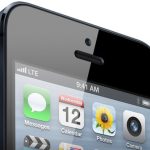
That sound you hear: Emerging markets sucking the margins out of iPhone. Gartner predicts that Chinese brand and white-box handset manufacturers will dramatically change the smartphone market's course this year. Android is likely to be the big beneficiary, while iPhone has the most to lose. Economies of scale will bite Apple, which benefits from one of the tightest supply chains anywhere. Chipset integration, for example, will allow handset makers to ship cheaper devices that are good enough, even if less than market leaders.
"The combination of competitive pricing pressure, open-channel market growth and feature elimination/integration will very soon result in the $50 smartphone", Mark Hung, Gartner research director, says. "Semiconductor vendors that serve the mobile handset market must have a product strategy to address the low-cost smartphone platform, with $50 as a target in 2013". That's right, 50 bucks, not the $650 Apple charges carriers.
Enterprises embrace Apple like Microsoft
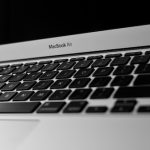
During the mainframe era, you could hear phrase: "No one is fired for buying IBM". In the 1990s and 2000s, the same could be said about Microsoft. As the so-called Post-PC era pushes forward, soon same can be said about Apple, if some IT organizations don't already. Gartner predicts that by 2014, enterprises will accept the fruit-logo as much as Windows, which is something scary for the company owning that market segment.
Consumerization of IT -- or bring your own device to work -- forced Apple on unwilling IT organizations. Now, after tasting the fruit, they like it. More of them than ever are willing to deploy Macs, which encroach on territory Microsoft seeks to claim for Windows 8.
'House of Cards' is just that for big media companies

The new made-for-Netflix drama "House of Cards" is aptly named for what it represents -- a fundamental shift in entertainment creation, distribution and consumption. The political thriller is by no means the first made-for-web TV show. But the production values, storytelling and intrigue meet, and in some ways surpass, those found from cable network productions. Yes, even Showtime's popular "Homeland".
I predict that Netflix has here what HBO did with "The Sopranos" in 1999, an industry-changing series. The D.C. drama, starring Kevin Spacey and Robin Wright, shows how the entertainment industry is a house of cards new media distribution can topple. Good content can go to the web first, or only there.
Android is winning the mobile platform wars

Some days the sorry state of news reporting really baffles me. Today I read numerous headlines claiming that Android tablet share surged past 50 percent in Q4, usurping iPad -- all using numbers I wrote about a day earlier. The one on CNN -- "IDC says Android is the new king of tablet market share" -- got to me. Immediate reaction: "What did I miss?" But in looking over the numbers, nothing really jumped out that IDC said any such thing. Sure iPad shipment share fell to 43.6 percent from 51.7 percent annually and from 46.4 percent sequentially. I chose to ask the analysts rather than follow the feeding frenzy.
"Android actually passed the 50 percent mark in 3Q 12", Tom Mainelli, IDC research director for tablets, says. Whoa, there's no new king at all. Android took the crown last summer. Still, that's a phenomenal achievement, setting me to write a story I couldn't imagine a year ago.
iPhone wins the U.S. (kind of), but Android rules the world

Americans love their iPhones, finally enough to topple Samsung's long-time leadership. During fourth quarter, Apple nudged ahead of the South Korean electronics giant, with 34 percent share, based on shipments, according to Strategy Analytics. To be clear, the numbers are for all mobiles, not just smartphones. The distinction is important for several reasons. The American company only ships smartphones, for which demand rages. Related: Overall phone shipments fell for the year.
"Apple has become the number one mobile phone vendor by volume in the United States for the first time ever", Neil Mawston, Strategy Analytics research director, says. "Samsung had been the number one mobile phone vendor in the U.S. since 2008, and it will surely be keen to recapture that title in 2013 by launching improved new models such as the rumored Galaxy S4".
What have investors got against BlackBerry?
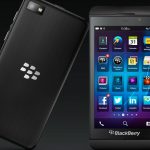
I would think that the long-anticipated BB10 platform would excite the stock market. Rather, shares of the company formerly known as Research in Motion and still listed as RIMM are down more than 26 percent from Monday's open. BlackBerry (new company name) is up about 1 percent in late-mornong trading today, but it's tiny respite from a beating that started before Wednesday's big new product reveal.
I haven't seen BlackBerry 10 up close, or the new Q10 and Z10 smartphones, but "impressed" is apt description, nevertheless. Would I switch, though, from Nexus 4 and Android? Probably not, and that is RIMM's problem -- too many people like me -- and perhaps what has legitimate investors (not pesky shortsellers) antsy. BlackBerry market share has fallen too far against Android and iOS, which, according to IDC, had 92.1 percent combined market share in fourth quarter. Once a leader, BlackBerry fights to be the far-behind third smartphone platform.
Surface sales suck
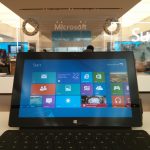
Or do they? If you listen to some analysts, Surface, and other slates running Windows 8 or RT, started slow out of the gate. Considering how much tablets sapped PC shipments in Q4, slow forebodes trouble ahead. Or does it?
"There is no question that Microsoft is in this tablet race to compete for the long haul", Ryan Reith, IDC program manager, says. "However, devices based upon its new Windows 8 and Windows RT operating systems failed to gain much ground during their launch quarter, and reaction to the company’s Surface with Windows RT tablet was muted at best". He estimates that Microsoft shipped just 900,000 Surfaces during fourth quarter, which means to stores and not actual sales to customers.
Apple's idea of innovation is premium-priced iPad?
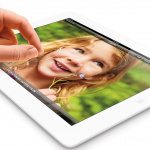
Yesterday morning, when I rolled out of bed (West Coast time) and saw colleague Wayne Williams' headline on 128GB iPad, I thought: "Well, good for Apple! This should bring down the price and raise storage capacity of other models". But the details wiped away all enthusiasm. This thing sells for as much as $929. What the frak? Who will pay that much for a tablet in a market pining for considerably lower prices, like $199?
Apple's idea of innovation is to double storage and charge considerably more for it. Perhaps CEO Tim Cook and company read too many blogs about supposedly overpriced Microsoft Surface Pro, which iPad gangbangers insist competes with the fruit-logo tablet. Not so -- Microsoft priced against Windows ultrabooks and MacBook Air. But based on that faulty comparison, Apple can claim bragging rights. The new iPad ships February 5, four days before Surface Pro -- that's no coincidence -- and by comparison for less but with more. With 128GB storage, Microsoft's slate is $999, while the other isn't just $70 less but packs 4G LTE radio, too. Reasonable comparisons stop there, and no one should be fooled, although many will be.
Will you buy the BlackBerry Z10?

Today, the company formally known as Research in Motion, unveiled the BlackBerry 10 platform, and first two supporting devices -- the touchscreen Z10 and physical keyboard-packing Q10. The new products are quite literally a corporate relaunch, which includes ditching moniker RIM for BlackBerry.
While the Z10 and Q10 are officially launched, BlackBerry provides little information on the keyboard phone, while plenty on the other. The screen is smaller (3.1 inches versus 4.1 inches) and the battery is larger (but BlackBerry doesn't say by how much). So for today, I'll stick with what we know something about, and that's the Z10.
Windows Phone 7.8 arrives, check your device NOW!

If you're one of the many jilted Windows Phone 7.5 users, your day has come. Version 7.8 is rolling out to Nokia phones as I write. "Notifications will begin to appear for Nokia Lumia 510, 610, 710, 800 and 900 owners with an unlocked phone or operator approved software during February", company spokesperson Boc Ly says. "Simply connect your phone to your computer via Zune for PC, or the Windows Phone app for Mac, and follow the onscreen instructions".
The update is long overdue, and in many ways unsatisfactory. For example, Nokia Lumia 900 debuted on U.S. carriers in March 2011. Three months later, Microsoft announced Windows Phone 8 with a bombshell: None of the current devices would support the OS. None. Those phones would get Windows 7.8, which lacks many of the features that make 8 great, by comparison. In the annals of dumb product development moves, I have to rank this one highly. Loyal customers rush to a new platform only to be dissed for it -- and people wonder about Windows Phone's slow start?
Brilliant! RIM's name is now BlackBerry
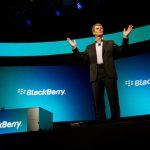
Maybe one head really is better than two. Today during the BlackBerry World keynote, Research in Motion CEO Thorsten Heins made a startling, and quite unexpected, announcement. There's a new name, adopted from the flagship product -- BlackBerry.
Heins replaced co-CEOs Mike Lazaridis and Jim Balsillie a year-ago this month, promising to aright the badly listing RIM. Today, BlackBerry 10 operating system and new devices officially launch, as Heins seeks to deliver on the promise. Apparently, the name change is part of that.
Nexus 4 is back in stock, but for how LONG?
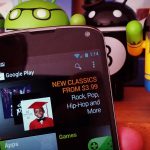
In the United States, Google Play has both Nexus 4 models available for sale -- after nearly two months stocked out. The bumper is available, too. If you're one of the gadget geeks looking for this smartphone, get it while you can, and that might not be for long.
Google launched Nexus 4 on November 13, but sold out in just hours. The phone reappeared on November 27. A day later, Google Play redefined "sold out" by listing shipment date as 8-9 weeks. From a retail distribution perspective, Nexus 4 is pure disaster. It's anyone's guess how many could have sold over the holidays, but greedy gadget geeks couldn't get the phone short of paying extortion-like prices.
Microsoft really doesn't want you to buy Office 2013

They're here! Today Microsoft released new versions of the flagship productivity suite alongside cloud companions. But if you look closely, all the chatter is about Office 365. The software giant wants your head in the cloud, and tidy, easy-to-account subscription revenue with it. CEO Steve Ballmer and team endlessly blather about "reimagining" Windows, but Office gets the bigger makeover -- not just how people work, but how they pay to do it.
Subscription revenue is Microsoft's Holy Grail, and one sought since the mid 1990s, because it smooths out revenue and locks in customers. New Office releases come about once every three years. Office 2007 launched six years ago tomorrow and its successor in May 2010. The company can't depend on consistent sales, which tend to spike around new releases. Subscription -- how Microsoft sells Office 365 -- is smoother.
Joe's Bio
Joe Wilcox is BetaNews executive editor. His motto: Change the rules. Joe is a former CNET News staff writer, JupiterResearch senior analyst, and Ziff Davis Enterprise Microsoft Watch editor.
Ethics Statement© 1998-2024 BetaNews, Inc. All Rights Reserved. Privacy Policy - Cookie Policy.
